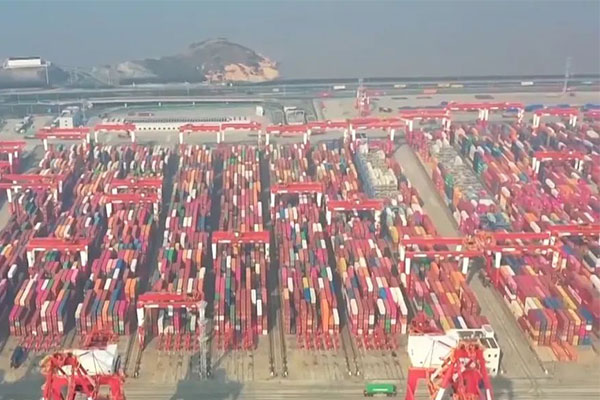
New blue ocean in foreign trade: The rise of outbound processing
In recent years, with the accelerated restructuring of global industrial chains, a new trade model known as "outward processing" has been rapidly emerging in key foreign trade hubs like Ningbo. By 2024, the number of enterprises adopting the outward processing model under Ningbo Customs had expanded to six, with total annual import and export value reaching 1.046 billion yuan, a 25-fold increase year-on-year. This data fully demonstrates that outward processing is becoming a crucial option for the transformation and upgrading of foreign trade enterprises.
What is outbound processing?
Simply put, outward processing is a processing trade model characterized by "both ends at home and the middle abroad." To be specific:
- Raw material export: Enterprises export their own raw materials, auxiliary materials and components overseas
- Overseas processing: Entrust overseas enterprises for manufacturing or processing
- Finished product import: Re-import processed products within specified time limits
This model is particularly suitable for enterprises that need to utilize specific overseas processes or technologies while retaining core production domestically.
Three core advantages of outbound processing
Compared with traditional processing trade, outward processing offers distinct policy advantages:
1. Significant tax benefits
Under outward processing, customs only taxes the value-added portion. Take an electronic components manufacturer as an example:
- Export material value: 1 million yuan
- Overseas processing fee: 300,000 yuan
- Traditional model requires full taxation on 1.3 million yuan
- Outward processing only taxes the 300,000 yuan value-added portion
2. Simplified regulatory processes
Outward processing operations:
- Not restricted by prohibited/restricted processing trade catalogs
- Exempt from bank deposit requirements
- Eliminates consumption rate management
- Electronic ledger replaces paper manual
3. More convenient customs clearance
Enterprises can:
- Freely choose import/export ports
- Enjoy the "single window" one-stop service.
- Adopt automatic verification mode
How to conduct outbound processing business?
Based on 20 years of foreign trade experience, we recommend enterprises follow these steps:
1. Qualification preparation stage
- Confirm non-discredited entity status
- Verify goods are non-prohibited/restricted
- Prepare complete production process description
2. Account setup stage
Submission through the "Single Window":
- Outward processing contract
- Product images/samples
- Material usage plan
3. Key points for customs declaration
Special Attention:
- Use customs code 1427 on export declaration
- Separately declare original and value-added portions upon import
- Accurately report overseas material usage
Key customs supervision reminders
Drawing from years of customs clearance experience, special reminders for enterprises:
1. Time management
- Ledger validity: 1 year
- Complete verification within 30 days after verification period
- Unreturned goods beyond deadline treated as general trade
2. Exception handling
- Quality issues require return shipment during verification period
- Imbalanced ledgers require timely explanation
- Cooperate with customs audits
3. Risk prevention
- Establish comprehensive document management system
- Regularly verify ledger data
- Retain complete processing evidence
Future prospects of outbound processing
With the accelerated "going global" of new quality productive forces enterprises, outbound processing will exhibit three major trends:
- Industry expansion: Extending from electronics to biopharma, new materials etc.
- Regional expansion: Southeast Asia becoming primary processing hub
- Policy optimization: More intelligent and convenient customs supervision
For enterprises considering outward processing, we recommend:
- Conduct tax calculations in advance
- Select reliable overseas partners
- Build professional customs team
Outbound processing is like opening a window for enterprises to the global industrial chain, allowing them to leverage overseas advantages while enjoying domestic policy benefits. Under the premise of compliant operations, it undoubtedly serves as a "golden pathway" for foreign trade enterprises to transform and upgrade.


 Follow Customer Service WeChat
Follow Customer Service WeChat